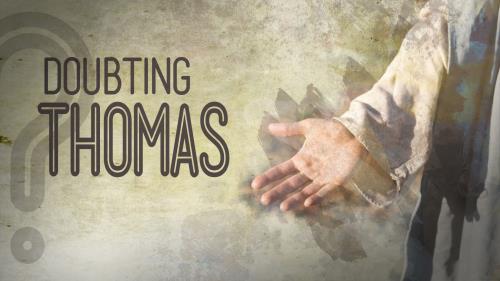-
Is Sincerity Enought? Series
Contributed by Andy Payne on Nov 28, 2017 (message contributor)
Summary: Sincere belief does not make what you believe, true Your belief may be sincere, but you may be sincerely mistaken.
Is Sincerity Enough?
Acts 26:1-29
Intro: Series about truth
Last time: truth is not relative
Creating our own reality
Truth is objective
Can’t escape the fact that things are true simply because they are
Thinking or accepting something as truth, does not make it true
ILLUSTRATION: Playing “Make-believe”
READ: Acts 26:1-29
BG: King Agrippa/Paul
Paul’s defence during his trial
Enthusiastic devotee to the Jewish faith
He insists that the Christian faith is continuous w/ Judaism
Hostility to the church
He did not blindly accept Christian belief – overwhelming conviction to convert
v. 6 “... And now it is because of my hope in what God has promised our fathers that I am on trial today”
Expectation that God has and will fulfil his promises ... in particular Paul believes they have been fulfilled in the person of Jesus
Proof is in the resurrection of Jesus
v. 8 “... Why should any of you consider it incredible that God raises the dead?”
Sincere belief does not make what you believe, true
Your belief may be sincere, but you may be sincerely mistaken
There are many things that are false or wrong, not matter sincerely one might believe
Why is sincere belief an inadequate test of whether it is true or not?
Josh McDowell says,
“... Belief will not create fact. Truth is independent of belief. No matter how hard I may try, believing something will not make it true. For example, I may believe with all my heart that I want it to snow tomorrow, but this will not guarantee snow. Or, I may believe that my run-down old car is really a new Mercedes convertible, but my belief won’t change the facts.
What is self-contradictory in the idea that sincere belief dictates what is true?
The problem: we can believe sincerely that something is true, but have no power to necessarily make it true.
I may believe sincerely that the All Blacks are the World Champions of the Rugby World Cup. The truth of the matter is that we did not win the last world cup, South Africa did. We did not even make the semi-finals. Sincere belief is not enough. We have to accept that perhaps truth is defined by circumstances outside of our control. We may win the World Cup next year—then this statement will be true, but not because we believe it to be true, but because the facts lead us to this conclusion.
Why do people make the catastrophic error of thinking that all religions are right and that it does not matter whether the claims the make are objectively true?
It is easier to say that all religions are the same – or at least are different expressions of understanding God
However, as I established a few weeks ago – that we must examine the claims of different religions to understand what they say
If one set of beliefs—are contradictory with another—then we cannot accept that they are both right
The most we can say is that both of them are wrong—the least we can say is one of them may be right
When it comes to Christian faith—how do we know?
v. 14 “... kick against the goads”
Goads were used to prod cattle and livestock forward
Metaphor – used to prod cattle and livestock forward
Frequently kick back – causing themselves more injury
The thought is that Paul has been kicking against God’s “goading,” and God has been trying to urge him to go in a certain direction.
To “kick against the goads” today means, there is a way of right life & right belief but we fight it ... we aren’t hurting God... hurting ourselves
Self revelation of God
Evidenced in creation
Directly with individuals
The written word
In Jesus (Life, death and resurrection)
Continued through us

 Sermon Central
Sermon Central



